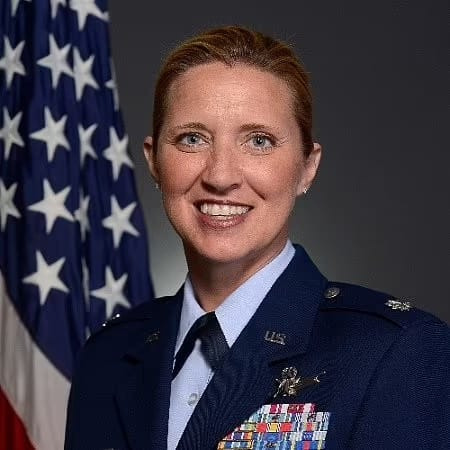Colonel Susannah Meyers, commander of the U.S. military base in Greenland, has been removed from her position. This comes after an email she reportedly sent criticizing a statement made by Vice-President JD Vance. Meyers was stationed at Pituffik Space Base, a key U.S. facility in the Arctic. The U.S. Space Operations Command announced her removal, citing a "loss of confidence in her ability to lead."

Vice-President Vance recently visited Greenland, a territory governed by Denmark. During his trip, he accused Denmark of failing to secure the Arctic region. Vance stated that Denmark had "not done a good job" for the people of Greenland. His remarks sparked a strong response from both Danish and Greenlandic leaders. They defended their efforts in maintaining Arctic security and rejected his criticism.
On March 31, shortly after Vance's visit, Colonel Meyers reportedly sent an internal email to her base staff. In the message, she appeared to distance the base from Vance's comments. "I do not presume to understand current politics," she wrote. "But what I do know is the concerns of the U.S. administration discussed by Vice-President Vance on Friday are not reflective of Pituffik Space Base." The email was obtained and confirmed by Military.com through U.S. Space Force sources.

The Pentagon responded swiftly. Chief spokesperson Sean Parnell shared the Military.com article on X, formerly Twitter. He wrote, "Actions that undermine the chain of command or subvert President Trump's agenda will not be tolerated." This statement appeared to confirm that Meyers' dismissal was linked directly to her email.
Colonel Shawn Lee has been named as the new commander of Pituffik Space Base. The Space Force emphasized that all commanders are expected to stay neutral and uphold professional standards. "Commanders must remain nonpartisan in their duties," their official statement read.
The situation highlights growing tensions over Greenland's role in U.S. military strategy. President Trump and Vice-President Vance have both shown interest in expanding American influence there. During his visit, Vance reiterated the Trump administration's desire to strengthen its presence in the Arctic. This includes exploring options like acquiring land or increasing U.S. control in the region.
Denmark and Greenland, however, have made their stance clear. Earlier this month, Danish Prime Minister Mette Frederiksen visited Greenland. She stood alongside Greenland's Prime Minister Jens-Frederik Nielsen and former leader Mute Egede. Together, they rejected any idea of U.S. annexation. "You can't annex other countries," Frederiksen said in a pointed comment directed at President Trump.
Frederiksen also pledged to boost Denmark's military resources in the Arctic. She proposed deeper defense cooperation with the U.S., but without compromising Greenland's autonomy.
Greenland has been under Danish control for around 300 years. However, the island has had self-rule since 2009 and holds the right to pursue independence through a referendum. Many Greenlanders support the idea of independence but do not want to join the U.S. Recent years have seen growing political calls for a vote, though no date has been announced.
Colonel Meyers' removal is another sign of how the Arctic is becoming a tense stage for global politics. Her email, seen as a break from White House messaging, cost her the top job at a critical military outpost.
This incident raises questions about political neutrality in the military and how the U.S. will navigate future relations with Greenland and Denmark amid rising geopolitical competition in the Arctic.









